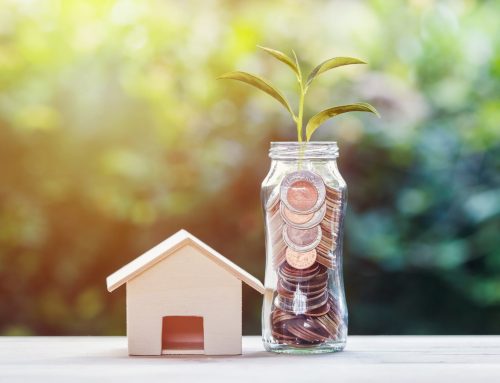Your credit score plays a big role in your mortgage.
When you buy a home and take out a mortgage, mortgage lenders are going to be looking closely at your credit score. Your credit score tells them what kind of borrower you are. It gives them an idea of how risky it would be to lend money to you.
If you have a low credit score, it might mean that you haven’t been very timely with your payments. It might indicate that you borrowed more than you could afford to pay back. Or it could show mortgage lenders that you already have a lot of debt, and it might not be a good idea to take on more.
Your credit score will affect the kinds of interest rates you can qualify for. Generally speaking, the lower your credit score, the higher your interest rate. And the higher your credit score, the lower your interest rate.
This matters because when you have a high interest rate, your payment will be higher, and you’ll spend more of your money on interest than you would with a lower interest rate. The difference in rates between excellent credit and poor credit could be one, two, even three percentage points.
Example
It might not sound like much, but if you use our Mortgage Calculator to see how this could shake out, you’ll see that the difference in rates adds up to tens of thousands of dollars.
Say you want to borrow $300,000, and you have excellent credit. Suppose you qualify for a mortgage rate of 4%. Over a 30-year mortgage, you’d pay $215,608.52 in interest on that home — in addition to the $300,000 you borrowed to pay for it.
But suppose instead you have poor credit. You might qualify for an interest rate of 6.5%. In that case, you’d wind up paying $382,633.47 in interest over the life of the loan – more than the amount you borrowed! That’s a difference of more than $167,000 from the “excellent credit score” amount.
- $300,000 at 4% for 30 years: $515,609.52 total borrowed
- $300,000 at 6.5% for 30 years: $682,633.47 total borrowed
(Note that we’re not including insurance, taxes, PMI, or other costs in these calculations — just the loan amount.)

Using savings to pay off debt
To qualify for those more attractive rates, you might want to consider paying down your debt and improving your credit score.
Paying off credit cards: Paying down your revolving debt, like credit cards and personal lines of credit, can help boost your score and will reduce your credit utilization.
Credit utilization is the total amount of what you’re borrowing compared to what is available to you. If you have a credit limit of $2,000 but your credit card has a balance of $1,500, your credit utilization is 75%. If you pay off your credit card bill, not only will save on those finance charges, but your credit utilization will be zero, and that can help raise your credit score. Even if you can only pay them down partway, it will help.
Paying off installment loans: Paying your installment loans, such as auto loans or personal loans, regularly and on time can help boost your credit score, too. If you have money left over after paying down your credit card debt, consider paying off your car loan or other installment debt. However, paying down this kind of debt doesn’t help your score as much as paying down your credit card debt will. If you have a choice, credit card debt should come first.
Paying down revolving debt and paying installment debt on time are two good ways to keep your credit score up. If you can bring your credit score to the “good” or even “excellent” range, you’ll enjoy even better interest rates on your home loan and that will save you money over time.
Using savings for a down payment
Using your funds for a down payment could help you save money, too. By putting down those funds, you reduce the amount of money you need to borrow for your mortgage. That loan amount is also called the principal. The interest you pay applies to the principal amount borrowed.
Let’s go back to the example above: the principal amount was $300,000. Instead of changing your interest rate from 6% to 4%, what if you changed the principal amount from $300,000 to $270,000? If you put down 10% ($30,000) as a down payment, then you’d only need to borrow $270,000.
- 300,000-30,000=270,000
Using the Mortgage Calculator again, suppose your interest rate was still 6.5%, as in the example above. By putting down 10%, you only need to borrow 270,000, and therefore you’re only being charged interest on that amount. You’d save nearly $40,000.
- $270,000 at 6.5% for 30 years: $644,370.12 total borrowed (principal + interest)
If you put down 20% instead, you’d only need to borrow $240,000.
- $240,00 at 6.5% for 30 years: $606,106.77 total borrowed.
How to decide
The best way to decide what to do with your savings is to run the numbers. Fairway Mortgage of the Carolinas makes it extra easy to get preapproved so you can find out how much you can borrow and what your interest rate could be.
Then, use our Mortgage Calculator to input your loan amount and interest rate. Test out a few different combinations. How much do you have saved? See how using that as a down payment could affect your loan amounts. Then, explore how your loan might change with a lower interest rate.
Next, look at your monthly payment options with each of these different loan amounts. What payments would fit into your monthly budget? Remember, you’ll still need to pay your credit cards, personal loans, car payments, student loans and any other debt you may have after you buy a house.
It’s really important that your monthly mortgage payments don’t use up all your funds, so you have money left over to stay on top of your debt. If you pay down your debt before you buy the house, you’ll have one less thing to worry about.
If you need help
Still not sure? That’s where Fairway’s expert Mortgage Planners come in. We can help you explore all of your options. We even have a CrediTools program that can help you get your credit score back on track if you need it.
We know finding a mortgage can feel complicated! We’re here to help. Apply online today or contact us to get started!
Get a FREE Mortgage Consultation Today!

References
https://www.experian.com/blogs/ask-experian/should-you-pay-off-credit-card-debt-before-buying-home/
https://www.bankrate.com/mortgages/get-a-mortgage-with-bad-credit/
https://www.thebalancemoney.com/mortgage-rates-by-credit-score-4171904
https://www.experian.com/blogs/ask-experian/what-debt-to-pay-off-first-to-raise-credit-score/
Copyright©2021 Fairway Independent Mortgage Corporation. NMLS#2289. 4750 S. Biltmore Lane, Madison, WI 53718,1-866-912-4800. All rights reserved. This is not an offer to enter into an agreement. Not all customers will qualify.Information, rates and programs are subject to change without notice. All products are subject to credit and property approval. Other restrictions and limitations may apply.Equal Housing Opportunity.
*Fairway Advantage pre-approval is based on a full review of the borrower’s creditworthiness and is contingent upon there being no material changes in the borrower’s financial condition or creditworthiness at the time of final loan approval. Final loan approval is subject to the following conditions: (1) borrower has identified a suitable property, and a valid appraisal supports this proposed loan amount; (2) A valid title insurance binder has been issued; and (3) borrower selects a mortgage program and locks in an interest rate that will support the pre-approved monthly payment amount. Loan must close before the expiration date provided in the pre-approval. Offer not available on USDA,Bond, or DPA programs. Sale of home proceeds contingency not allowed. Gifts not deposited are not allowed. Please note that submitting verifying documentation is not a requirement to receive an estimate of closing costs associated with a mortgage loan.








